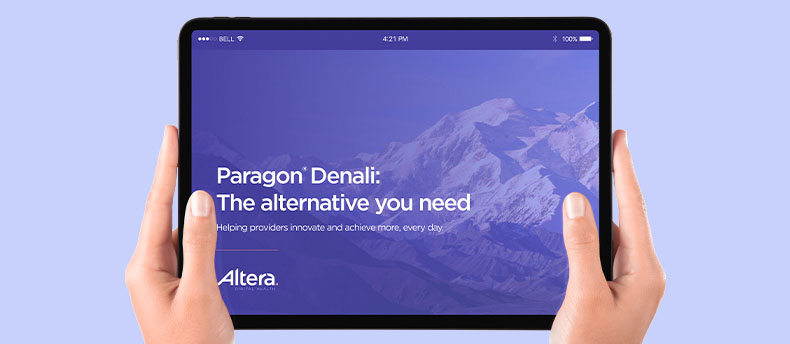Article
Flipping the script: Why nurses stay
The daily activities of any nurse can vary greatly, but, specifically for this piece, I want to take a look deeper into how electronic health records (EHRs) have the potential to significantly enhance patient care by providing immediate access to comprehensive patient information. Further, I want to examine how, if these systems are not properly implemented or used across an organization, they can contribute to clinician burnout.
As a practicing nurse, I am constantly tuned into how the industry as a whole addresses the profession and our evolving needs.
According to a study by KLAS Collective, one-third of U.S. nurses experiencing burnout cite EHR systems as contributing factors, with 40% of these nurses considering leaving their jobs. These statistics underscore the urgent need for EHR vendors to rethink their approach, focusing on increasing user satisfaction, reducing stress and streamlining the documentation process.
What, then, should organizations do to ensure nursing attrition doesn’t continue to trend upward?
According to a study by KLAS Collective, one-third of U.S. nurses experiencing burnout cite EHR systems as contributing factors, with 40% of these nurses considering leaving their jobs.
Cut down the data stream.
One of the most significant contributors to nurse burnout is the overwhelming amount of data and documentation required by current EHR systems. To address this, vendors need to develop solutions that prioritize the most relevant information, enabling nurses to focus on data that directly affects patient care. Nurses become nurses to be with patients, to care for them. Simplifying the documentation process and reducing unnecessary data entry will make EHRs more intuitive and user-friendly, freeing up valuable time for nurses to spend actually delivering patient care rather than sifting through digital paperwork.
Promote true collaboration.
 Another way to mitigate burnout is by designing EHRs that foster collaboration among all healthcare providers, doctors, nurses, technicians, etc. When EHRs include tools that facilitate the sharing of patient information and support remote consultations, the burden of care is more evenly distributed, reducing the pressure on individual clinicians. This collaborative approach not only improves patient outcomes but also drives job satisfaction among whole healthcare teams.
Another way to mitigate burnout is by designing EHRs that foster collaboration among all healthcare providers, doctors, nurses, technicians, etc. When EHRs include tools that facilitate the sharing of patient information and support remote consultations, the burden of care is more evenly distributed, reducing the pressure on individual clinicians. This collaborative approach not only improves patient outcomes but also drives job satisfaction among whole healthcare teams.
On that point, effective communication is crucial in healthcare. EHRs need to support this by incorporating embedded texting functionality. In doing so, real-time communication between healthcare team members is made seamless, ensuring critical information is conveyed promptly and efficiently. All the information is in the right place at the right time. By researching and implementing advanced communication tools, EHR vendors can help alleviate some of the stress associated with clinical decision-making and coordination. On top of that, patient care excels.
Upgrade better.
The frustration of lengthy system upgrades is another pain point for many clinicians. Reducing upgrade times from hours to minutes minimizes care disruptions. This kind of responsiveness from EHR vendors is essential for maintaining a functional and efficient healthcare environment. It seems like it ought to be a common, shared drive for most vendors, but these downtimes still exist.
Looking at EHRs a new way.
Recognizing these challenges, Altera Digital Health is actively working to enhance its Paragon® solution to address clinician burnout. As we look forward, one of the key strategies is expanding the solution management team to include nurses who bring firsthand experience and insight into the development process. This ensures the needs of frontline clinicians are prioritized in EHR design. I’m proud to work closely with the team to deliver on these goals.
FREE EBOOK
Paragon Denali: The alternative you need
Additionally, Paragon is working on moving nursing documentation to web-based solutions, significantly reducing load times and providing quicker access to critical patient data, such as lab and radiology results. By giving clinicians access to previously documented assessments and notes, Paragon is looking to make it easier for nurses to stay informed and deliver high-quality care.
Paragon is also exploring ways to incorporate embedded texting functionality, improving communication and coordination among healthcare teams. By reducing upgrade times and enhancing overall system performance, Altera is committed to providing an EHR that truly supports its users, rather than contributing to their stress.
Altera truly sees the summit of healthcare, and we know that all clinicians need to have the best tools to succeed. Nurses, specifically, need our support, and the fact remains that we as an industry need to do a better job to help them succeed. Altera is on the journey with them today and every day forward.
Visit here to learn more about how Paragon is leading the charge upward.














